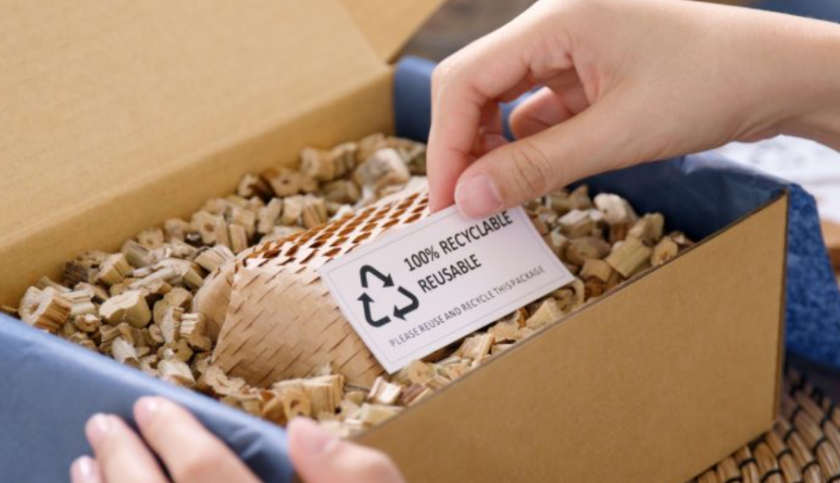With environmental initiatives rendering single-use plastics outdated, having a good reusable bag is now a necessity—and people keep them as fashion accessories, as well as grocery haulers.
Like every other product category, the bags and totes side is evolving with customer buying habits. Right now, the biggest draw is a bag that’s made from environmentally friendly materials, fitting in with the eco-friendly appeal of a reusable bag.
“Certainly, one of the biggest shifts in this market is the recognition for the need to use eco-friendly materials,” said Debbie Disparte, product management director for Koozie Group, Clearwater, Florida. “One of the things we’re most excited about is our recently launched bags that are made from recycled material, specifically recycled PET. We’ve tried to address different needs, so we have everything from a pouch to a drawstring backpack to a duffel.”
Disparte highlighted the KAPSTON Willow Recycled Backpack as an example of an eco-friendly bag that upgrades the standard canvas tote.
“It’s made with 71% post-consumer recycled PET, which is the equivalent of seventeen 14 oz. water bottles,” she said. “End-users are looking for gear that has lots of ways to organize electronics and other daily necessities, and this backpack doesn’t skimp on those needs.”
Koozie Group also launched a fanny pack—a product that’s had a fashion comeback since its heyday in the 1990s—to complement the backpack in this collection.
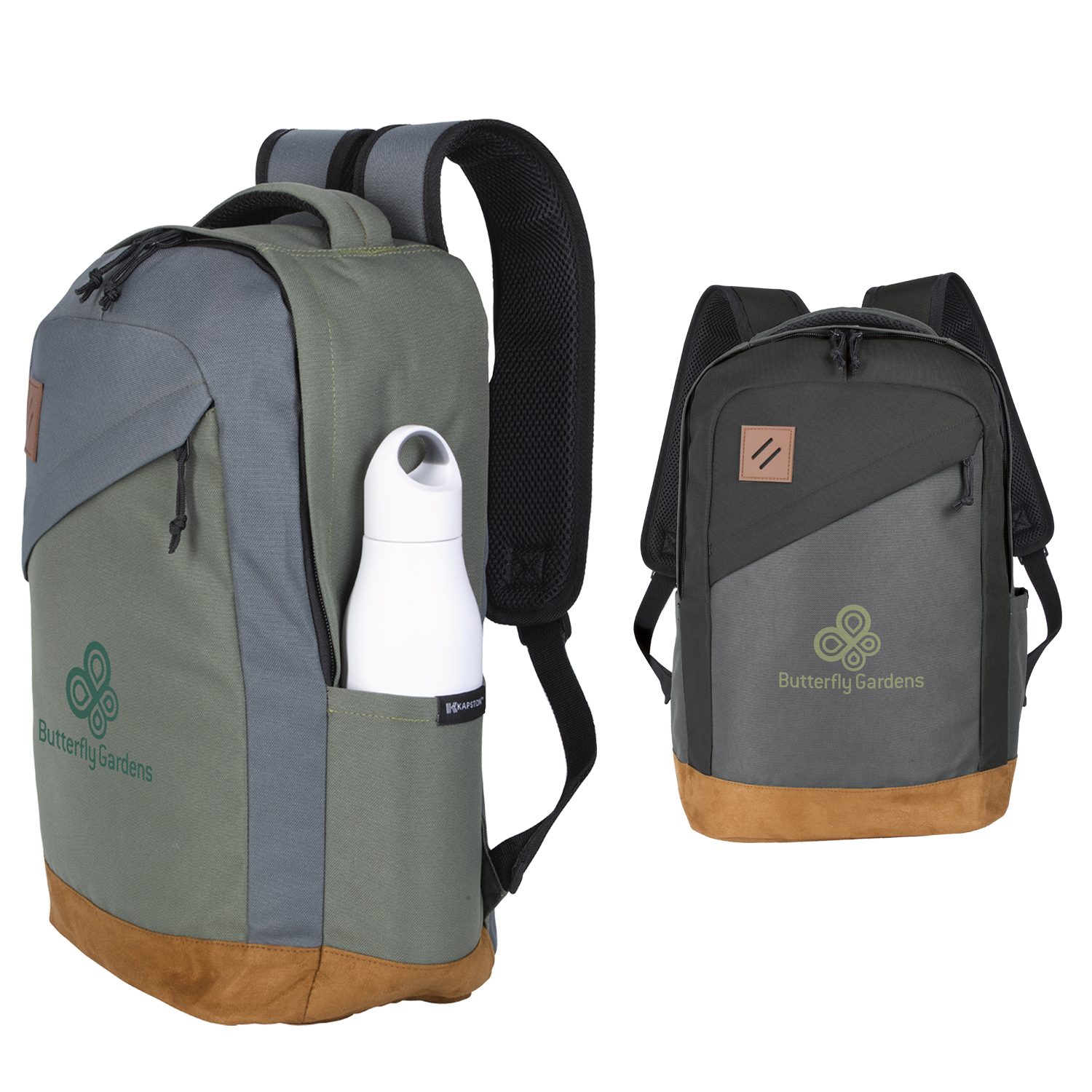
Give the People What They Want
Going beyond the prototype canvas tote can make you stand out as a distributor. We’re all familiar with the classic NPR tote bag that has become a fashion icon by itself, but your customers want to create their own branding experience. So, working with a supplier that can create custom products to fit the particular campaign could be a huge benefit.
“I think what makes things really exciting about what we do is that we offer products, bags, aprons, totes, cosmetic cases—we offer products that don’t exist in the marketplace or really exist anywhere, because 75% of our business comes from our incredible design team that actually comes up with all of the concepts and the virtual, and comes up with these illustrative decks for our distributors,” said Jeff Mayer, CEO of LBU Inc., Passaic, New Jersey. “We design the product and we start from scratch, like a big bakery. We actually build that gorgeous tote bag in the shape [the client wants], and [use] full-dye sublimation, seam-to-seam printing, and by the time we’re done with that piece, you could replicate full four-color feel of what that client is spending their advertising money on by building it into a sewn product.”
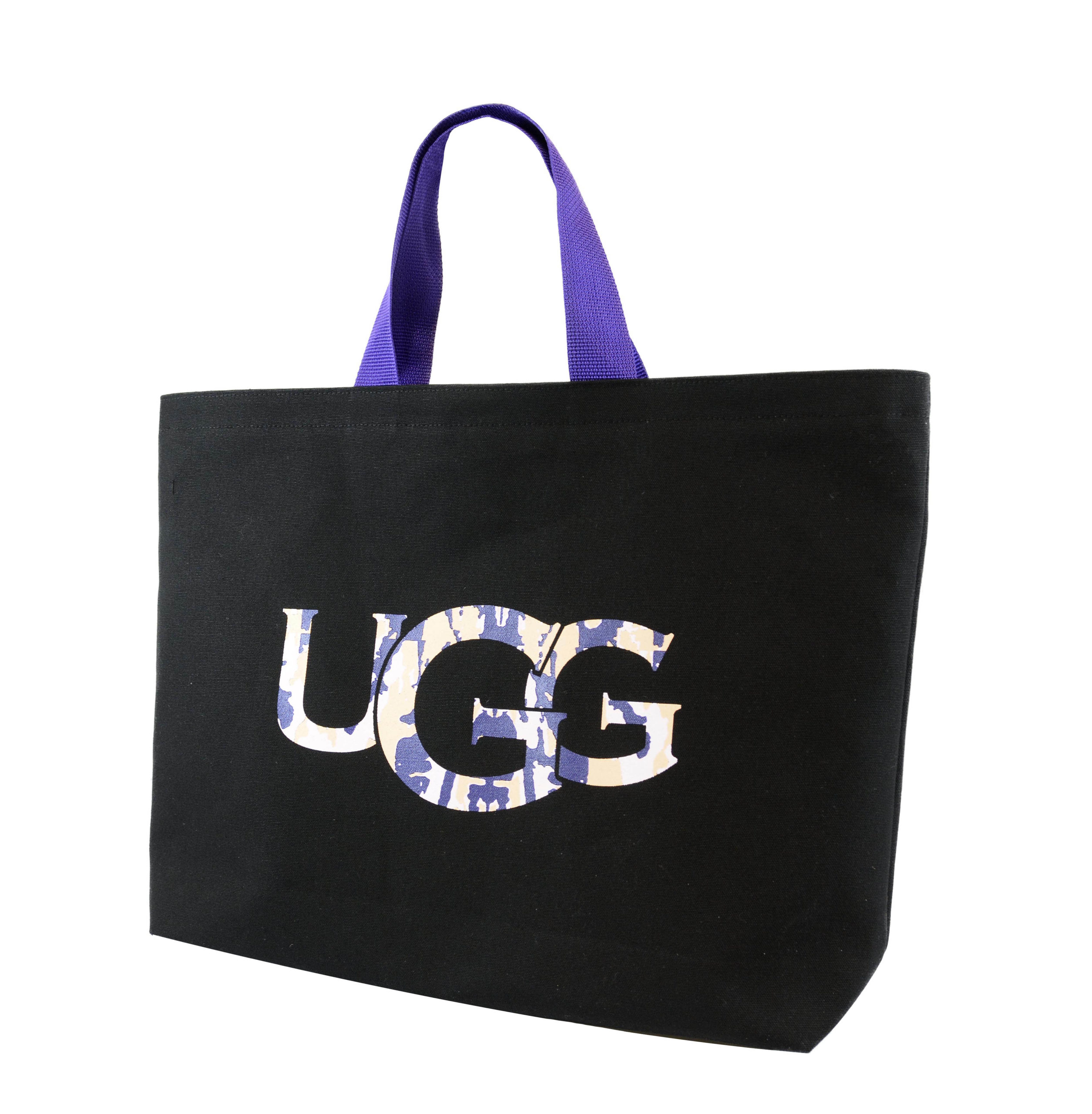
While we’re on the topic of environmentally friendly products, Mayer said that it’s actually easier than you might think to incorporate eco-conscious materials, especially if you work with a supplier that manufactures domestically.
“Most of our canvases that we do, a lot of them come from down south in the Carolinas and are recycled already, so that’s a big plus,” he said. “The fact that the canvas is already a natural cotton product, then it’s recycled. … And then when it comes to some of the other fabrics, like rPET, that’s really nice because that’s either done in a canvas or it can be done in a felt. So, it’s got a nice 16 oz. weight. It’s a beautiful product. And those all come from recycled plastic bottles.”
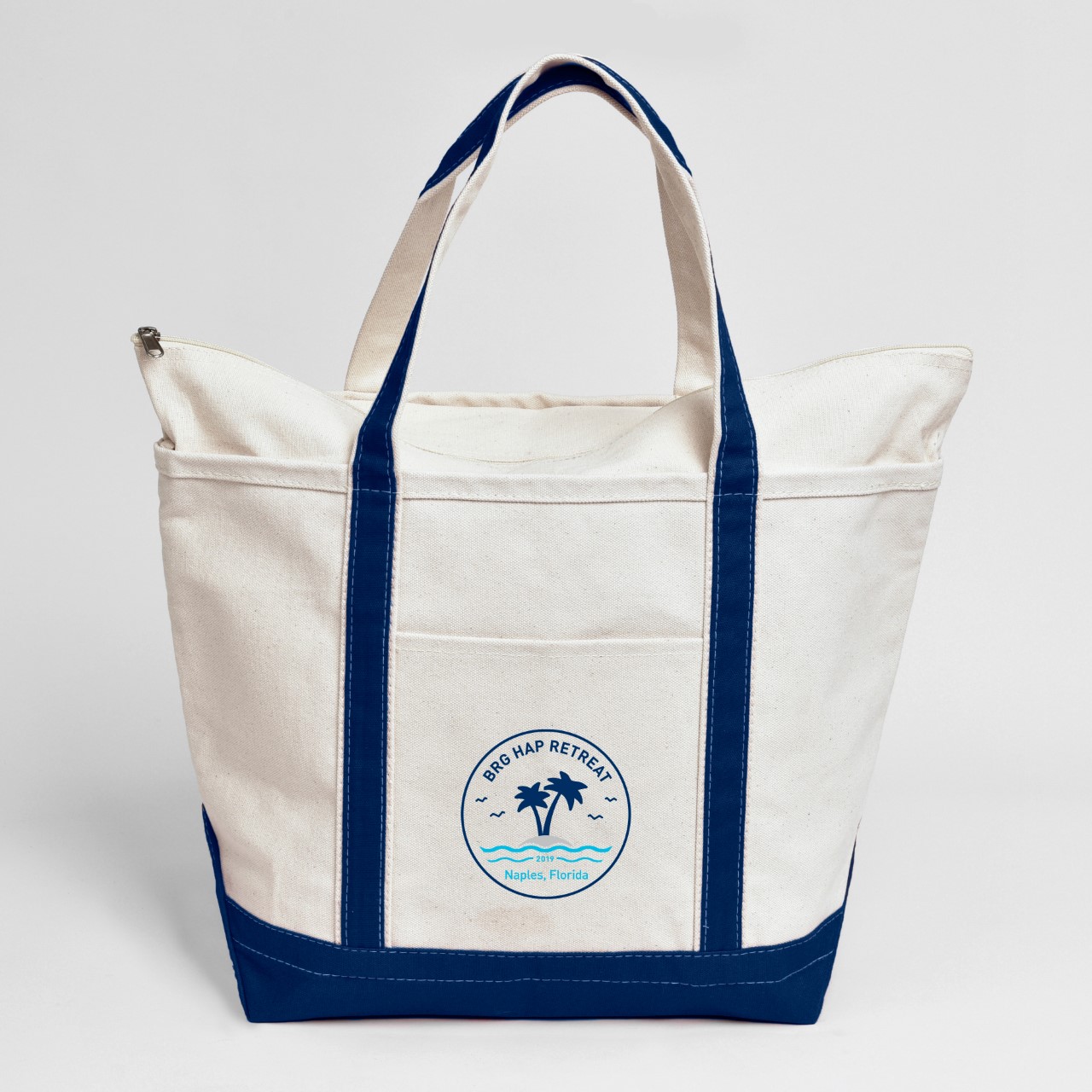
Respond to the Times
Plastic bag and single-use bag bans are becoming more common. They’re no longer limited to select cities. Whole countries are starting to take steps to eliminate single-use plastics, and that means businesses like grocery stores, alcohol distributors and retailers will need items like tote bags not only as a way for customers to carry their goods, but to sell on site for extended brand visibility. Some retailers do things like offer a discount to shoppers who bring their own tote bag featuring the business’ logo.
“You have seen more larger requests come in on canvas totes for those types of promotions,” Mayer said. “Not so much geared to the food retailers. That’s a separate thing. But even the promotional people, knowing that those customers typically will go to a supermarket and have a need for a product like that, the goal has been coming up with some much nicer reusable totes that are perfect to keep in your car or go back and forth to the supermarket with, with full-sized gussets. Basically, what you’re doing is replicating a brown paper bag with handles on it, and it can be washed, it can be fully printed. We’ve definitely seen a nice jump on requests coming in for reusable canvas totes for that market.”
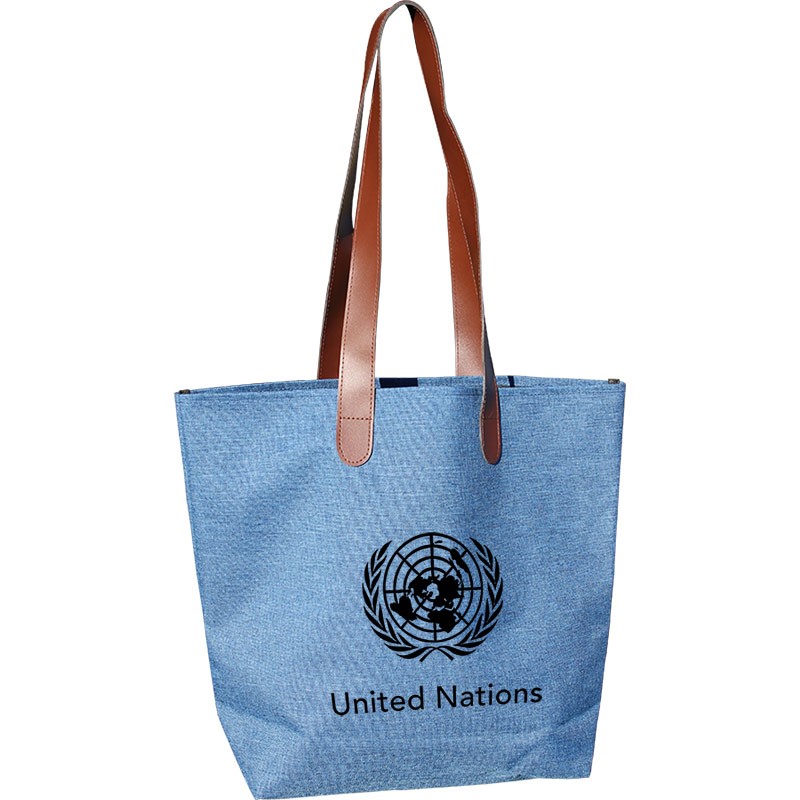
Disparte said consumer behavior is perhaps as influential in the push toward reusable bags as legislation.
“Studies have shown that consumers are becoming much more concerned with how their purchasing habits
affect the planet,” she said. “A growing number of end-users are willing to pay a premium for eco-friendly products.”
Materials like jute for grocery bags are popular choices. Basically, anything that a customer could use time and again, and maybe wash easily to extend its longevity, is a good option. The longer the lifespan of the
product, too, the longer the brand awareness.

